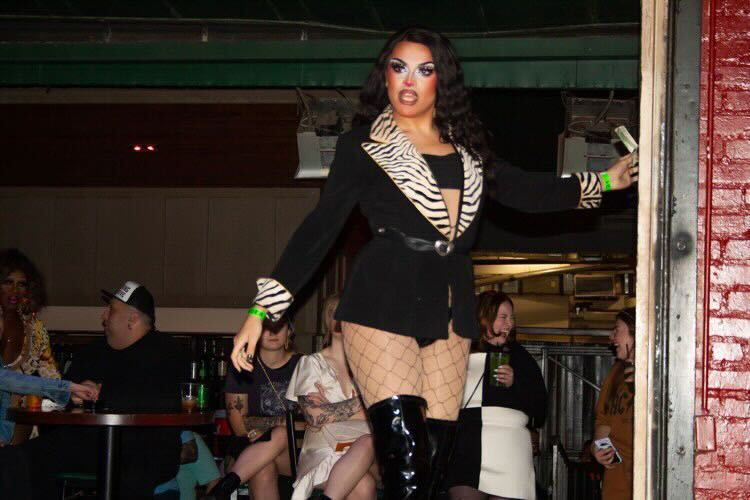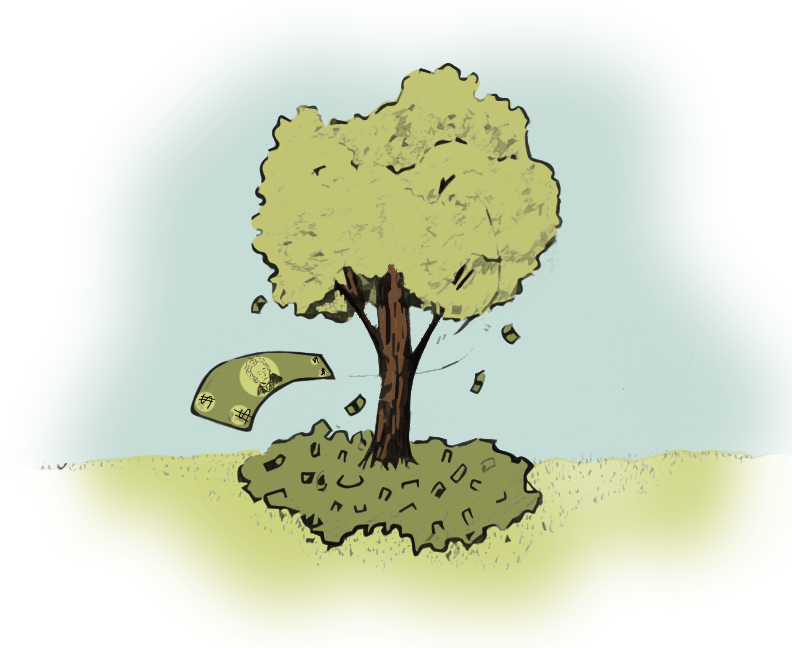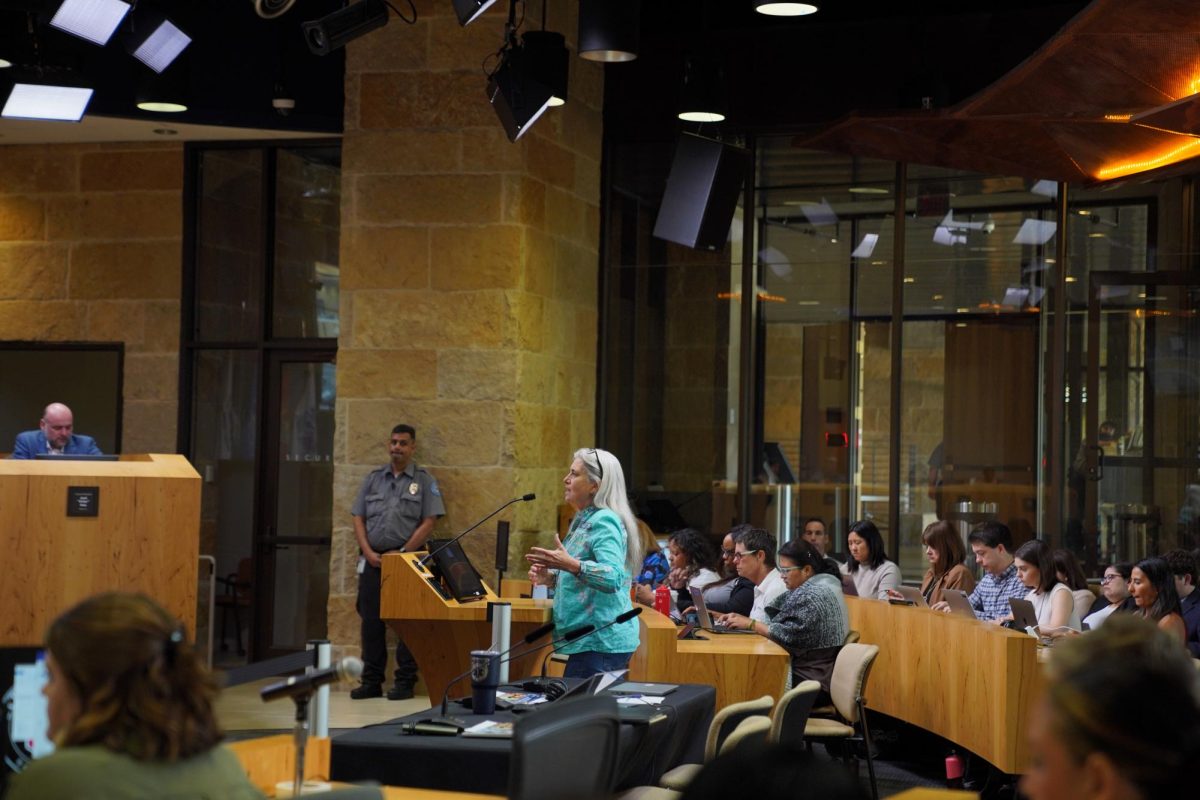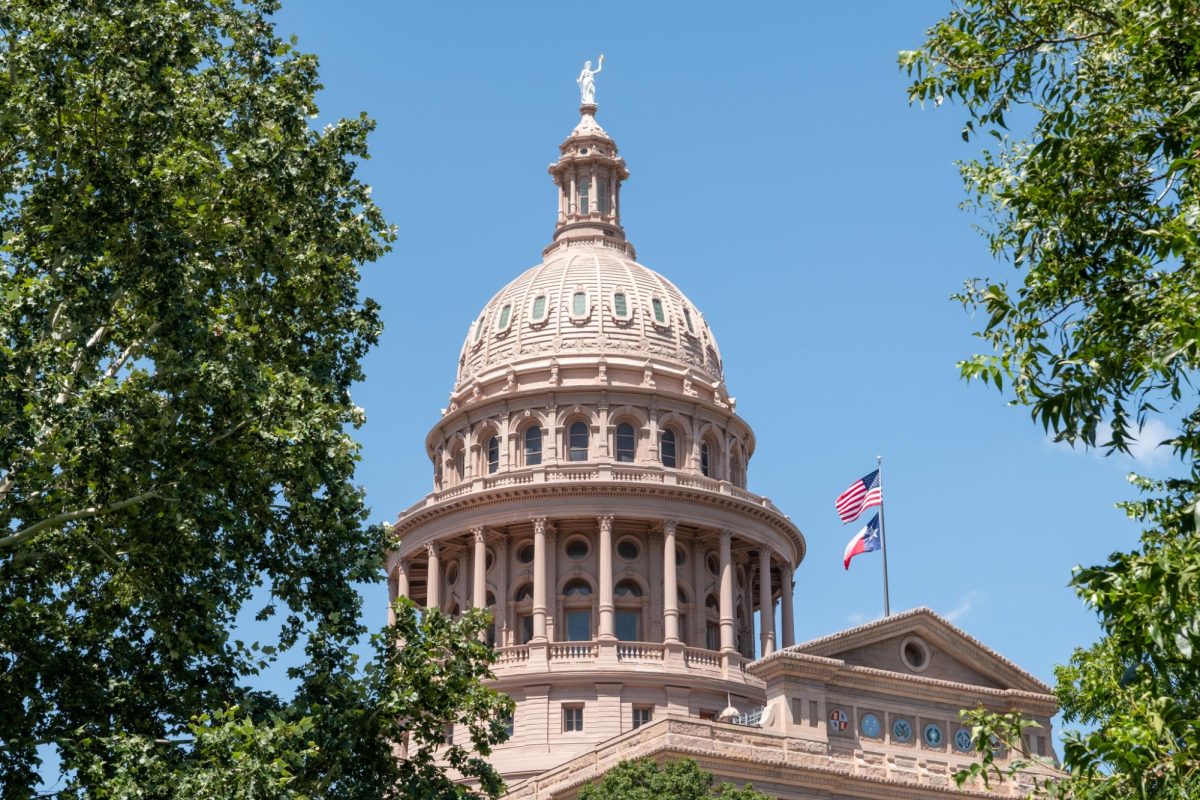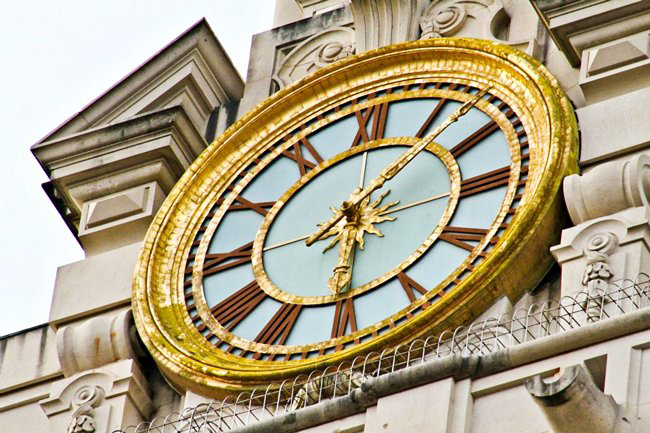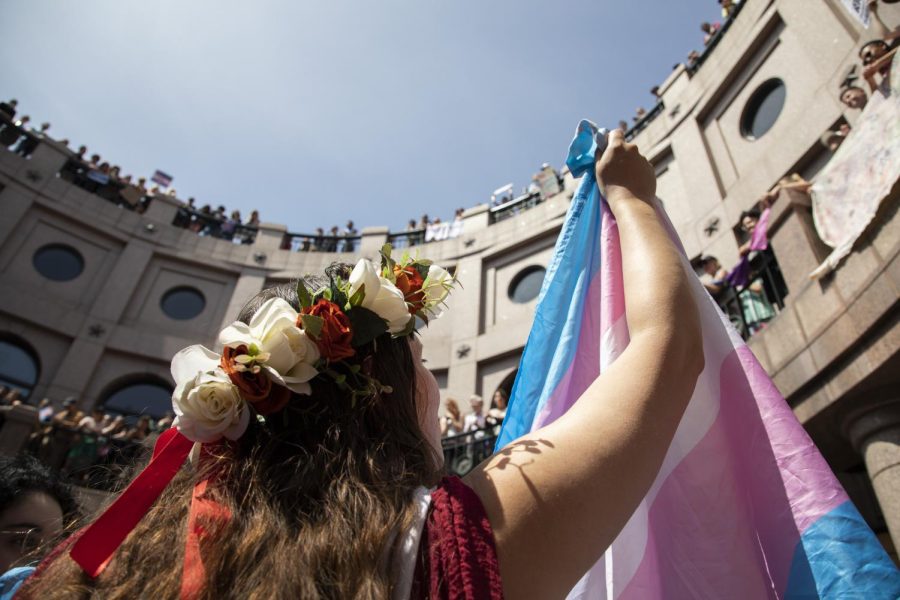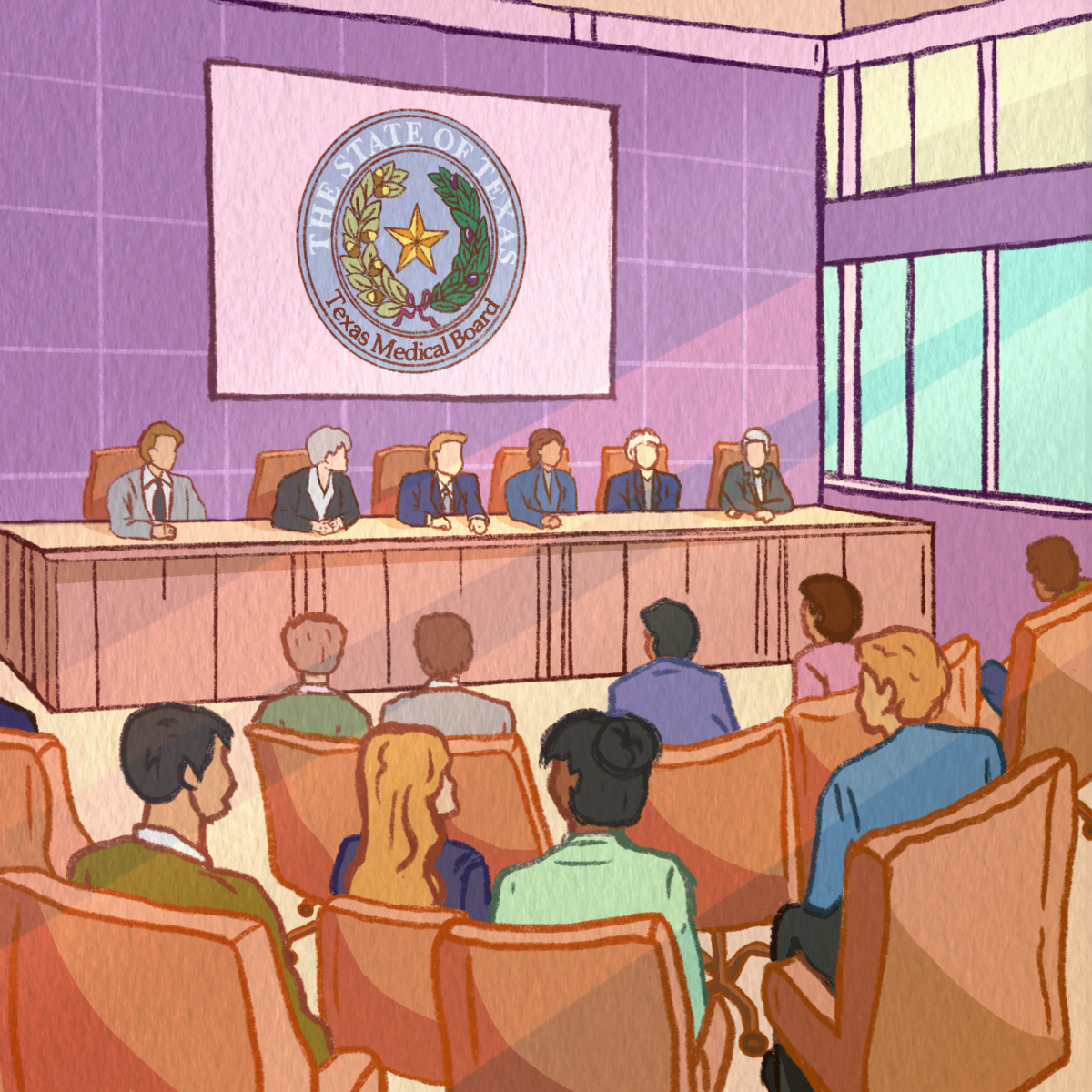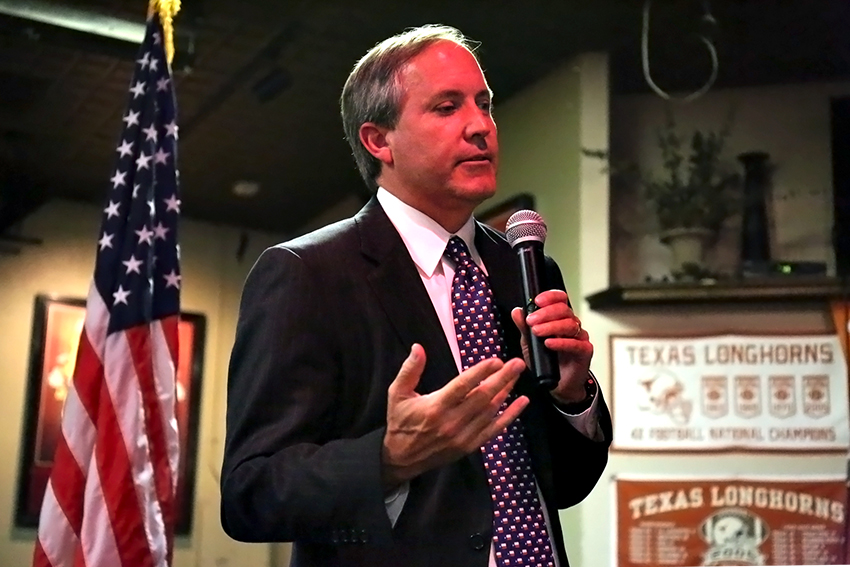When scrolling through Maxine LaQueene’s Instagram, viewers find post after post of LaQueene in sparkling ensembles and bold makeup, performing in front of cheering crowds. Scrolling further, viewers also see videos of LaQueene physically tossed out of Texas Senate chambers for protesting Senate Bill 12 at the Capitol building in Austin.
Now, three months after SB 12 was deemed unconstitutional, LaQueene said she envisions a time for celebration and restoration after a fight with lawmakers to ensure her rights as a drag performer.
Gov. Greg Abbott signed SB 12 into law in June. According to the bill, all “sexually oriented” performances are not permitted on the premises of a commercial enterprise, on public property or in the presence of a minor. The bill does not use the term “drag” explicitly, but states that men dressing as women or women dressing as men in a public performance would be in violation of this law, resulting in a civil penalty or criminal offense.
While reviewing a Texas American Civil Liberties Union lawsuit against the attorney general in August, a federal judge deemed SB 12 unconstitutional for violating the First Amendment. The judge’s ruling means no Texas government official can enforce SB 12.
“We went through the wringer, if you will, of the political climate here in Texas,” LaQueene said. “I feel so much more educated. I mean, in every show that I do, I talk about SB 12, I tell people, ‘Baby, we’ve got to register to vote, if you are not registered to vote.’”
The ACLU of Texas filed the lawsuit in August with five plaintiffs leading the charge. 360 Queen Entertainment, a company owned by couple Richard Montez and David Gamez, produces drag shows in San Antonio, and was one of the plaintiffs in the suit.
“We were hearing rumblings about this drag ban and all the vitriolic language that was being used to describe drag and all these different pieces in the media, and immediately, we felt like we wanted to fight back,” Montez said.
Montez said the real catalyst for he and Gamez getting involved in the lawsuit was when people started to become disruptive at the shows they put on in his family’s restaurant.
“We had a situation where there was a customer who was convinced that what we were doing was already illegal even though SB 12 hadn’t become law yet,” Montez said.
After calling the police and informing the man that 360 Queen Entertainment was not doing anything illegal, Montez said the man looked at him and said, “it may not be illegal now, but one day it will be.”
“That’s just going to always be a core memory because I feel like some of these people are so sure of themselves,” Montez said.
The most concerning aspect of the bill for those fighting against it was the vagueness in language. Though the bill originally branded itself as a law to prevent children from seeing drag shows, many performers worried other drag shows, regardless of audience age, would potentially be on the chopping block.
If SB 12 hadn’t been blocked, any business hosting a public drag performance might’ve received a $10,000 fine. Performers could be charged with a Class A misdemeanor, potentially landing them in jail for up to a year with a $4,000 fine.
LaQueene said that if SB 12 passed, formal drag shows would not have been the only performances banned.
“There would be no Mrs. Doubtfire,” LaQueene said. “There would be no drag on SNL. Anything related to the public form of drag would be outlawed, and then that just trickles down to any kind of cross dressing, you know, acting, theatrical, those kinds of things.”
Scarlet Sagamore, an Austin-based drag performer, said that SB 12 would have changed the drag landscape completely.
“Just going to the gig and getting out of my car in drag would potentially put us in danger as well, which is so ridiculous,” Sagamore said. “There are bars that are outside that are partially public facing. We wouldn’t be able to do gigs there. It would have changed a lot of what we do.”
Gamez said that the bill’s language was so vague that even though 360 Queen Entertainment’s shows are for those over the age of 18, he wasn’t sure what would happen if a child caught a glimpse of a performance.
“Our shows are held in a public place where children could possibly see the drag queens,” Gamez said. “There could be someone driving by, because our restaurant is close to the highway. Boom, a child could look out their car window and see a drag show going on.”
It’s not just drag queens and businesses targeted by SB 12, LaQueene said, but the LGBTQ+ community as a whole.
“It goes past drag,” LaQueene said. “Because in that bill, somebody who represents a gender that they are not assigned at birth, or that does not show what their ID or their birth certificate show, could be fined or penalized from this.”
Though SB 12 was blocked by a federal judge, Sen. Bryan Hughes who authored the bill said he would defend it, even if that meant going to the U.S. Supreme Court.
With a presidential election coming up in 2024 and a new senate session two years away, drag performers and activists consider what’s next.
“Our community needs to take the rest of the year, and actually just take a break,” LaQueene said. “Celebrate the small victories in life because that’s what it is. We are celebrating the small victory that is SB 12 being blocked. So, we can all go about our shows feeling a little bit less worried about repercussions.”
For those who want to stand with drag performers as they continue to fight, Montez said speaking up, amplifying the cause and getting engaged in the community are essential for making change.
Whether posting on social media or registering people to vote, Montez said that using collective action to spark engagement is crucial for protecting the fundamental rights of LGBTQ+ citizens in the U.S.
“No matter how scary it is, we’ve got to keep amplifying,” Montez said. “We’ve got to keep elevating what we do every single time.”



